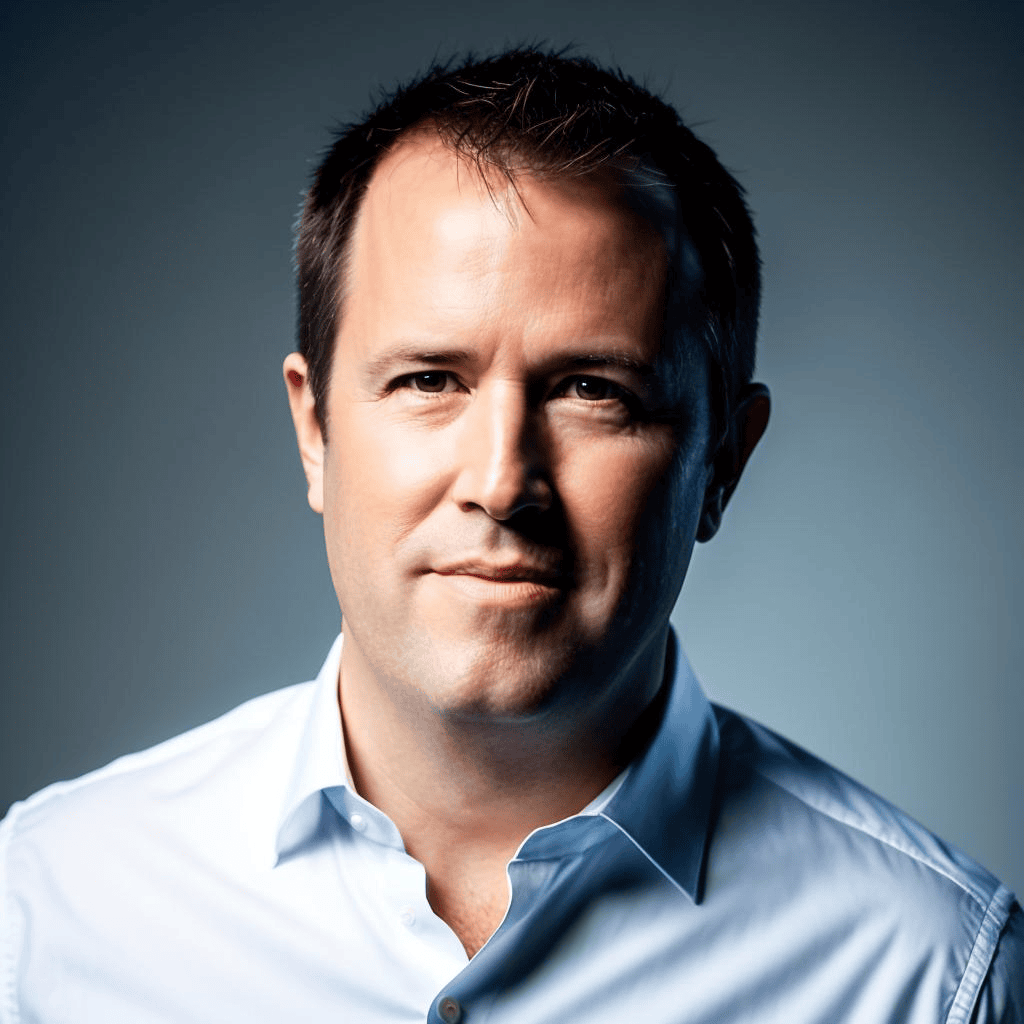Public speaking isn’t just about standing in front of a crowd—it’s about influence, confidence, and making an impact. Whether you want to command attention in meetings, deliver powerful presentations, or simply stop feeling nervous when speaking up, the right training can accelerate your growth. But with so many public speaking courses out there, how do you know which one is worth your time? This guide will help you cut through the noise, identify what truly matters, and choose a course that aligns with your career goals—so you can speak with confidence and lead with authority.
Key Takeaways
- Identify your specific public speaking goals to find a course that meets your needs.
- Consider the format of the course, whether in-person, online, or hybrid, to fit your learning style.
- Look for courses that emphasize practical exercises and provide constructive feedback.
- Research the instructor’s background and teaching style to ensure a good fit.
- Factor in your budget and the time you can commit to the course.
Understanding Your Public Speaking Goals
Before you even think about signing up for any online public speaking training, let’s get real. Why are you doing this? Seriously, dig deep. It’s not enough to say, “I want to be a better speaker.” We need specifics. What’s the real reason? What do you want to achieve?
Identify Your Career Aspirations
Okay, let’s talk about your job. How could better speaking skills actually help you climb the ladder? Are you looking to land that promotion? Maybe you want to lead bigger meetings, nail those presentations, or finally get comfortable networking. Think about the specific situations where confident communication could make a tangible difference in your career trajectory. It’s about more than just sounding good; it’s about getting results. Consider if leadership speaking training is right for you.
Define Your Learning Objectives
Now, let’s break down what you actually want to learn. Do you need help with structuring your thoughts? Maybe it’s your delivery that needs work. Or perhaps you’re terrified of Q&A sessions. Pinpoint your weaknesses and turn them into clear, measurable learning objectives. This isn’t about vague aspirations; it’s about setting yourself up for success with a structured speaking programs.
Assess Your Current Skill Level
Be honest with yourself. Where are you really at right now? Are you a complete beginner who freezes at the thought of speaking in front of others? Or are you relatively comfortable but want to polish your skills and become a more persuasive communicator? Understanding your starting point is key to choosing the right course. There are even public speaking courses for introverts!
It’s easy to overestimate or underestimate your abilities. Take some time to reflect on past speaking experiences. What went well? What could you have done better? Ask for feedback from trusted colleagues or friends. This honest assessment will help you choose a course that meets you where you are and pushes you to grow.
Exploring Different Course Formats
Choosing the right format for your public speaking course is almost as important as the content itself. Think of it like picking the right tool for a job – a hammer won’t help you paint a picture, and a dull course format won’t help you become a confident speaker.
Just like a tool, simply signing up (and potentially paying) for a course alone will not help you become a better speaker or help the next time you’re called on in that Zoom meeting at work. You have to complete the course and the work, so the format and community matters.
Let’s break down the most common options.
In-Person Workshops
In-person workshops are the classic approach. They offer a highly immersive experience with immediate feedback from the instructor and peers. You get to practice in real-time, work through your anxieties in a supportive environment, and build connections with other aspiring speakers. The downside? They can be less flexible and potentially more expensive than other formats. Plus, you’re limited by location. If you’re looking for executive communication courses that simulate real-world scenarios, this could be a great fit.
Online Courses
Online courses have exploded in popularity, and for good reason. They offer unmatched flexibility – you can learn at your own pace, on your own schedule, from anywhere in the world. The cost is often lower too. However, the lack of face-to-face interaction can be a drawback for some. It requires more self-discipline and motivation to stay on track. Make sure to look for courses with interactive elements, like live Q&A sessions or peer review opportunities, to get the most out of the experience.
Hybrid Learning Options
Hybrid courses aim to blend the best of both worlds. They typically combine online modules with occasional in-person sessions or live virtual workshops. This format gives you the flexibility to learn at your own pace while still benefiting from direct interaction with instructors and peers. It’s a solid option if you want a structured learning experience with some flexibility. For those seeking advanced presentation skills courses, a hybrid model can provide the theoretical knowledge online, coupled with practical application during live sessions.
Choosing the right format depends entirely on your learning style, schedule, and budget. Consider what’s most important to you – flexibility, personal interaction, cost, or structure – and then explore the options that best align with your needs.
Evaluating Course Content and Structure

Choosing the right public speaking course isn’t just about finding something that fits your schedule; it’s about ensuring the course itself is built to help you actually improve. Let’s break down what to look for in the meat of the course.
Key Skills to Look For
What skills should a solid public speaking course cover? Well, it’s more than just standing up and talking. Look for courses that teach you how to craft a compelling message, use your voice effectively, and connect with your audience. A good course will also address things like overcoming stage fright and handling tough questions. Make sure the course covers a wide array of topics, including overcoming fear, crafting persuasive speeches, and developing effective body language and vocal delivery.
Importance of Practical Exercises
Theory is great, but public speaking is a skill you learn by doing. A course that’s all lecture and no practice is like reading about riding a bike – you won’t actually learn until you get on and pedal. Look for courses that include plenty of opportunities to practice, whether it’s through mock speeches, group exercises, or even just simple drills. The more you practice, the more comfortable and confident you’ll become. You must persist!
Feedback and Support Mechanisms
Feedback is how you grow. A good public speaking course should provide constructive feedback on your performance, helping you identify areas for improvement. This could come from the instructor, from your peers, or even from self-assessment tools. Also, consider the level of support offered. Is there a forum where you can ask questions? Does the instructor offer one-on-one coaching? The more support you have, the better your chances of success. It is important to define personal goals and identify the purpose behind wanting to improve.
Think of feedback as a gift, even when it stings a little. It’s an opportunity to see yourself as others see you and to make adjustments that will help you become a more effective speaker.
Finding the Right Instructor
Finding the right instructor is like finding the right guide for a challenging hike. You need someone who knows the terrain, can point out the pitfalls, and cheer you on when you’re ready to quit. It’s not just about credentials; it’s about connection and trust. Let’s explore what to look for in your ideal public speaking mentor.
Experience and Credentials
Okay, let’s be real. Experience matters. Having been a paid keynote speaker is cool, but has this person actually helped people become better speakers?
Look for instructors with a solid track record. Have they worked with different types of speakers? What are their areas of focus? Someone who’s spent years coaching executives for raising capital might not be the best fit if you’re trying to nail your weekly team stand-up meeting or upcoming conference talk.
Don’t be afraid to ask about their background and what kind of results they’ve achieved. You want someone who’s been in the trenches and knows how to get you out, too.
Teaching Style and Approach
Teaching style is super important. Do they yell and scream drill-sergeant style, or are they more of a gentle, encouraging type? Some people thrive under pressure, while others shut down. Think about how you learn best. Do you prefer structured lectures, hands-on exercises, or personalized feedback? A good instructor will adapt their approach to fit your needs, not the other way around. If possible, sit in on a class or watch some of their videos to get a feel for their vibe. You want someone whose style clicks with you, so you can actually learn and grow.
Student Testimonials and Reviews
Student testimonials are gold. They give you a real, unfiltered look at what it’s like to learn from this person. Don’t just read the glowing reviews on their website. Dig a little deeper. Check out third-party review sites, social media, and forums. Look for patterns. Are students consistently praising their feedback, their ability to create a supportive environment, or their practical tips? Be wary of instructors with no reviews or a bunch of generic, vague praise. Real testimonials tell a story and give you a sense of whether this instructor is the real deal. You can find the right speaking coach for you by doing your research.
Choosing an instructor is a personal thing. What works for your best friend might not work for you. Trust your gut. If something feels off, it probably is. Don’t settle for someone who doesn’t inspire you or make you feel comfortable. Your public speaking journey should be empowering, not stressful.
Considering Your Budget and Time Commitment

Okay, let’s get real about something super important: your wallet and your schedule. You might find the perfect course, but if it’s gonna break the bank or eat up all your free time, it’s just not gonna work. It’s about finding that sweet spot where you can invest in yourself without sacrificing everything else.
Free vs. Paid Courses
Let’s be honest, free stuff is tempting. And sometimes, it’s surprisingly good! You can find workshops, community events, or even online resources that give you a solid foundation. But, paid courses often come with more structure, personalized feedback, and access to instructors. Think about what you really need and what you’re willing to pay for it. It’s like anything else – you often get what you pay for, but that doesn’t mean free is always bad.
I’ve done paid speaking coaching with Vinh Giang, and he’s incredible. How did I get started with him? With his free youtube content and then practicing some of the ideas from specific videos.
On the opposite side, I’ve done negotiation and communication training with Chris Voss, author of Never Split the Difference. I did paid training with him years ago and now watch/listen to some of his free material as a refresher.
Duration and Flexibility
Are we talking a weekend workshop, a few weeks, or a full-blown semester? And can you do it at your own pace, or do you need to be somewhere at a specific time? Life happens, so flexibility can be a lifesaver. Self-paced online courses are great if you’ve got a crazy schedule. But if you need that in-person interaction and accountability, a structured class might be better.
Return on Investment
Think of a public speaking course as an investment, not just an expense. How will it help you in your career? Will it lead to better presentations, more confidence, or even a promotion? Figure out what that’s worth to you. Sometimes, spending a little more upfront can pay off big time in the long run.
It’s easy to get caught up in the excitement of learning something new, but don’t forget to do the math. Calculate the cost per hour, consider the potential benefits, and make sure it aligns with your overall goals. This isn’t just about public speaking; it’s about making smart choices for your future.
Leveraging Community and Networking Opportunities
Public speaking isn’t a solo act. It’s about connecting, sharing, and growing together. Think of your public speaking journey as a team sport, not an individual race. The connections you make can be just as important as the skills you learn. It’s about finding your tribe, people who get what you’re trying to do and can help you get there.
Joining Speaking Clubs
Speaking clubs are like gyms for your voice. They provide a safe, supportive environment to practice, experiment, and get feedback. It’s a low-stakes way to build confidence and hone your skills. Plus, you’ll meet people who are just as passionate about public speaking as you are. It’s a great place to find mentors, collaborators, and friends. Don’t underestimate the power of a good supportive network.
Participating in Workshops
Workshops are intensive bursts of learning and connection. They offer a chance to immerse yourself in specific skills, get personalized feedback, and network with other participants. Look for business communication workshops that focus on practical application and real-world scenarios. The energy and shared experience can be incredibly motivating.
Workshops are great for focused learning, but the real magic happens in the conversations you have during breaks and after the sessions. These are the moments where you build relationships and find opportunities you never expected.
Building a Supportive Network
Your network is your net worth, especially in public speaking. Surround yourself with people who encourage you, challenge you, and provide honest feedback. Attend industry events, join online communities, and reach out to speakers you admire. Don’t be afraid to ask for help or offer your own support. The more you give, the more you’ll receive. Remember, the best speakers are also great listeners and collaborators.
Measuring Your Progress and Success

Alright, so you’ve put in the work, taken the course, and practiced your speeches. Now what? It’s time to figure out if all that effort is actually paying off. This isn’t just about feeling good; it’s about seeing tangible improvements that translate into career growth. Let’s get real about how to measure your progress and celebrate those wins.
Setting Milestones
First things first, you need to know where you’re going. Think of it like this: you wouldn’t start a road trip without a destination, right? Same goes for public speaking. Set some clear, achievable milestones. These could be anything from delivering a presentation without notes to confidently handling tough questions during a Q&A. The key is to make them specific and measurable. For example, instead of saying “I want to be a better speaker,” try “I want to reduce my filler words (um, ah) by 50% in my next presentation.” That’s something you can actually track. Milestones keep you focused and motivated, and they give you a sense of accomplishment as you tick them off your list.
Seeking Constructive Feedback
Okay, this is where things can get a little uncomfortable, but trust me, it’s essential. You need feedback, and not just the “you were great!” kind. I’m talking about constructive criticism that helps you identify areas for improvement. Ask trusted colleagues, mentors, or even your course instructor for honest assessments of your speaking skills. Record yourself speaking and watch it back – cringe-worthy, I know, but incredibly helpful. Pay attention to your body language, vocal delivery, and the clarity of your message. Don’t take feedback personally; see it as a gift that helps you grow. A feedback loop is crucial for your improvement as it allows you to identify areas for growth and refine your skills over time.
Feedback is the breakfast of champions. Seriously, embrace it. It’s the fastest way to level up your skills and become the confident, impactful speaker you aspire to be.
Celebrating Achievements
Alright, enough with the tough love. Let’s talk about celebrating those wins! Public speaking can be daunting, so it’s important to acknowledge your progress and reward yourself for reaching those milestones. Did you nail that presentation? Treat yourself to something nice. Did you overcome your fear of speaking in front of a large audience? Go out and celebrate with friends. Recognizing your achievements boosts your confidence and keeps you motivated to continue improving. Don’t underestimate the power of a little self-appreciation. You’ve earned it!
Tracking your growth and achievements is key to understanding how far you’ve come. Regularly check in on your goals and celebrate your wins, no matter how small. This will help you stay motivated and focused on your journey. For more tips on measuring your success, visit our website today!
Speak with Confidence. Lead with Authority.
Choosing the right public speaking course is more than just picking a program—it’s about investing in yourself. The best speakers aren’t born; they’re built through practice, strategy, and the right training. The key is to start. Whether you’re looking to overcome nerves, refine your delivery, or step onto bigger stages, the right course can transform your confidence and career.
If you’re ready to sharpen your speaking skills, here’s your next step:
✅ Master your voice and presence – Learn from world-renowned speaker Vinh Giang in his free 3-part masterclass. Gain expert insights on vocal delivery, stage presence, and confidence-building strategies. Join the free training
✅ Turn public speaking into your advantage – The “21 Days to More Confidence & Credibility” course provides a step-by-step framework to eliminate hesitation, speak with authority, and create real impact when you present. Start today
Your voice has power. It’s time to use it.
Frequently Asked Questions
What should I consider when choosing a public speaking course?
Think about what you want to achieve with your speaking skills. Are you looking to build confidence, improve your delivery, or learn to engage an audience?
Are online public speaking courses effective?
Yes! Online courses can be very effective, especially if they include interactive elements like feedback and practice sessions.
How long do public speaking courses usually last?
Courses can vary widely in length. Some might be one-day workshops, while others could last several weeks or even months.
What if I have a busy schedule?
Look for courses that offer flexible schedules or self-paced options so you can learn at your own convenience.
Do I need prior experience to take a public speaking course?
No, many courses cater to all skill levels, from beginners to advanced speakers.
How can I measure my progress in public speaking?
Set clear goals for yourself, seek feedback from instructors or peers, and track your improvements over time.









